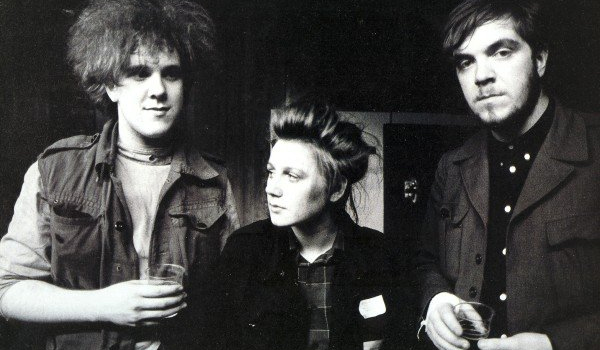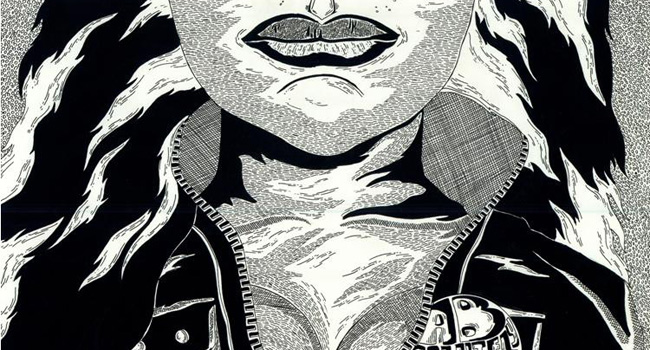As I begin, I must be forthright about something: Initially, I saw nothing wrong with the choice to include performances from R&B artist Chris Brown at the Grammys.
Sure, as I watched the show, I shared laughs with my friends at the irony of a predominately female crowd carrying inflatable batlike objects during one of Brown’s two performances, presuming they were distributed for defense. Discussion of his sets after a two-year hiatus were inevitable, forcing audiences to remember why the singer was essentially barred from being a musical mainstay in the first place. However, increasingly, I got a bad taste in my mouth as I watched the brazen contrast of former lovers Brown and Rihanna sharing the same stage, even if not simultaneously.
Although, as a self-identified feminist, I still did not believe that Brown’s past merited permanent damnation of a clearly talented artist.
Just three years prior, the Grammys were marked by a disturbing, high-profile case of domestic abuse. The night before both were set to perform, Brown repeatedly struck then-girlfriend Rihanna, leaving visible lacerations on the singer’s face, a fact that became alarmingly accessible via the $62,500 photo purchased and circulated by gossip publication TMZ. Unsurprisingly, the pair did not make their scheduled appearance at the award’s show the next night. Despite the wildfire-spread of this news, the celebrity community and fan base of both superstars remained largely silent about the atrocious injustice.
Unfortunately, it took last week’s announcement from producers Da Internz to bring this issue back into focus. As reported by MTV News, Brown is featured on the remix of Rihanna’s Talk That Talk single “Birthday Cake,” in a collaboration that will “shock the world.” This, among rumors that Brown appeared at Rihanna’s birthday celebration last week, sparked conversation of a Brown and Rihanna reunion. The purported reconciliation was furthered with Tuesday’s announcement that Rihanna “returned the favor” to Brown by appearing on the remix of his track “Turn Up the Music”.
Adding insult to injury, the leaked version of the “Birthday Cake” remix features this jaw-dropping poetic genius from Brown:
“Girl, I want to fuck you right now/Been a long time, I’ve been missing your body.” Yes, the same body that he violated in one of the worst ways imaginable.
This is more than a mending of differences between exes; and yes, it is something that should “shock the world,” but maybe not in the sense that the two performers’ camps had in mind.
It is one moral question to schedule Brown and Rihanna on the same bill, but it is another beast entirely to reunite the pair on a track. Collaborations are sacred to musicians and music lovers alike. It is a sharing of talent and creativity, and it gives the idea of camaraderie and fellowship in a sacred medium: music. I am at a complete loss to think of what message this rekindled partnership is supposed to send. It is a slap in the face to victims of domestic abuse, women as a whole, and—perhaps most importantly—Rihanna as an individual.
We may never know how the collaboration came about, but high-profile artists often become subject to their publicists and producers, the puppet masters that launch them to fame and prestige. Rihanna, despite being a highly successful multimillionaire, is a woman who was publicly shamed and humiliated. Now she is forced to play nice with the individual who rendered her helpless in the face of her fans. The man who betrayed her love and trust has suddenly become a business partner. It is ludicrous to imagine that this is something that Rihanna wanted herself?
So what exactly are audiences supposed to glean from this news? I can tell you what this screamed to me: that we are excusing Brown’s behavior. We are telling him that society accepts his crime and that his “artistic merits” trump this atrocity. It’s easy to lay blame on Rihanna for remaining silent about the incident, but forcing someone to examine such a scarring ordeal in public forums is neither fair nor comprehensible. We should not expect Rihanna to become a poster woman against domestic abuse—as that is no easy task—but instead, fans choose to interpret her silence as acceptance, a translation that is detrimental to the psychology behind the attack and its effects.
I wish I could say this was not an attack on women and feminist principles, but sadly, there is no male equivalent to the degradation a woman feels after being violently attacked by a man.
Perhaps this is why there has been a surprising lack of outrage surrounding the issue: male audiences simply cannot comprehend what this assault symbolizes to a woman. With the acceptance of this news, society told Rihanna that her suffering did not matter—that these wounds should be dealt with alone—while audiences set aside her attacker’s indiscretions.
I am standing by Rihanna. Brown’s swagger has been a bit too natural in the wake of these events. The situation would be completely different had the singer shown some semblance of remorse after committing maybe the most heinous of crimes, but we have yet to see that in a genuine public fashion—even through the justice system, which gave him six months of community service, five years probation and no jail time. I hate to deem him heartless, and in a completely well-intentioned way, I hope that he has been fighting a private battle to rectify his actions and examine his character.
Regardless, until Brown can prove that this experience has changed him in a positive fashion, I can no longer in good conscience throw support behind any of his projects. He is an undeniably talented person—that shows through his subsequent Grammy nominations and wins. Do I believe that people deserve second chances? Absolutely, but not without acknowledging their past. For Brown to redeem himself completely, he needs to remove more of the burden that Rihanna has been forced to publicly shoulder by recognizing his dark past.



